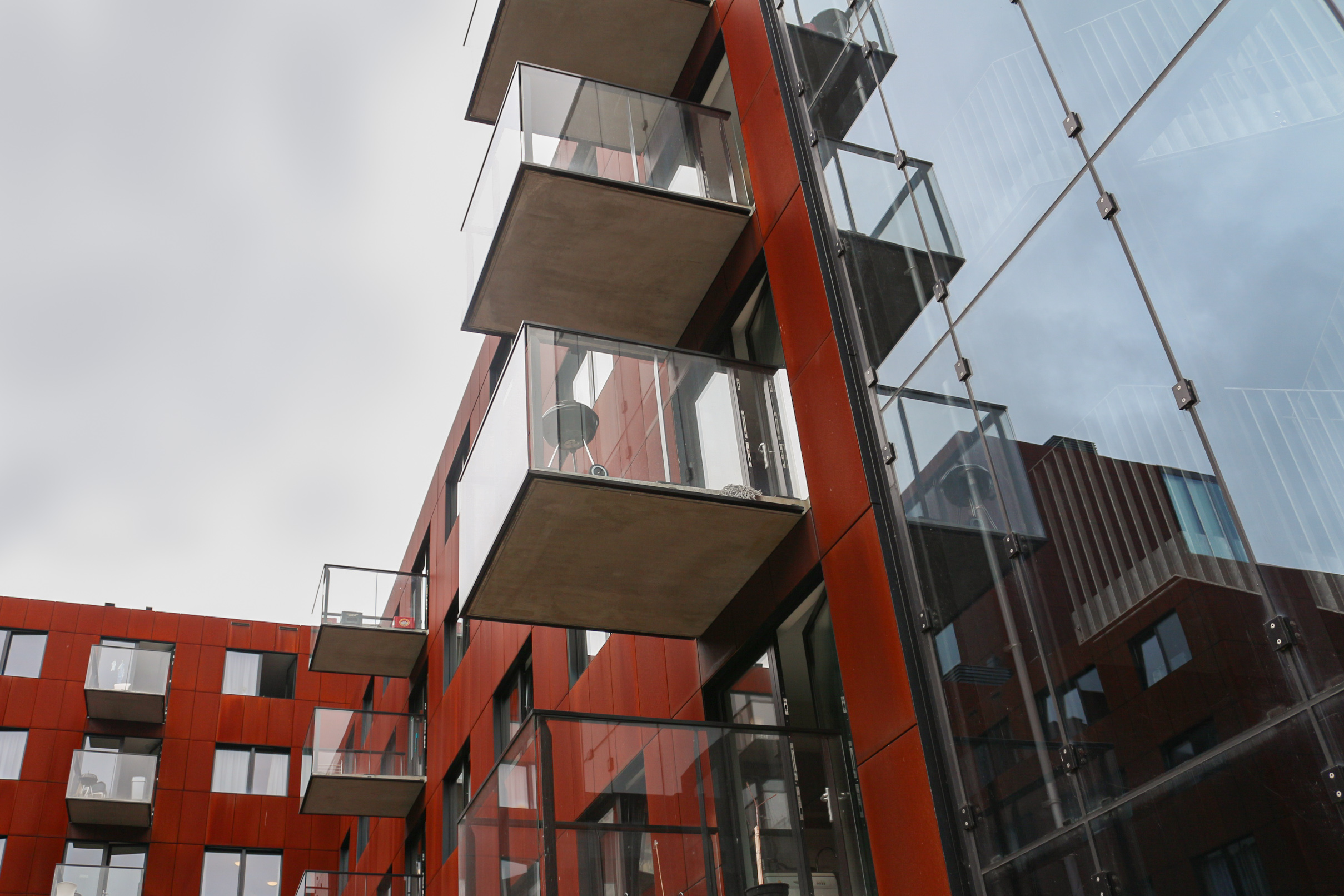The national shortage of rooms jumped to about 26,500 student accommodation units. Delft has a shortfall of 1,500 rooms and this may rise to 3,600 by 2028.
In 2017, 332 student rooms were realised on Professor Schermerhornstraat. (Photo: Justyna Botor)
The latest Ministry of Education projections show that student numbers are increasing faster than expected. The next eight years is likely to see a rise of at least 48,000 students, states the new monitor (in Dutch) that Kences, the umbrella organisation of student accommodation providers, commissions research agency ABF Research to compile every year. The continuously growing number of international students is the main factor, but there are also more and more Dutch university students.
The report shows that Delft currently has 11,800 Dutch students living away from home, 4,600 international students and 100 short-stay students. The forecast is that these 16,500 students presently seeking accommodation will rise to 22,830 in the 2028-29 academic year
At present, TU Delft has 28,217 enrolled students, 6,867 of whom come from abroad.
International students
Stip, the student political party, is concerned (in Dutch) as it is now already really hard for international students to find a room in Delft. ‘There is much uncertainty about the scale of the problems around accommodating international students’, the party wrote in a letter to the Municipal Executive. ‘Given the expected increase in the number of international students, it is highly likely that the problem will only get bigger.’ Stip wants to know if the Municipal Executive is aware of this issue and the scale of the problem now and in the future.
The ‘Delftse Woonmonitor 2021’ that shows the plans for new housing developments and general developments on the Delft housing market, shows that there is currently a shortfall of about 1,500 rooms. The municipality expects this shortfall to rise to 3,600 rooms in 2028.
Despite this, not much is being built. The municipality’s plan of delivering 2,000 student housing units between 2017 and 2023 was more than reached this summer with the completion of Campus 015 Pauwmolen. Balpol 4 will be delivered at the end of 2022, but after that more building work will only be done in 2030 when the municipality will build about 1,000 students’ units in the Kabeldistrict and Schieoevers-Noord (in Dutch) areas.
Looking for months
It is not only in Delft that building is going too slowly. Throughout the Netherlands about 18,000 student homes will be built up to 2025, states the national monitor. Even if this forecast is correct, the shortfall will increase dramatically and the shortage of accommodation will be critical. Finding accommodation now already takes time. Students living independently say that it takes them about 4.4 months on average to find accommodation.
Once they find a room, they spend about 46% of their income on rent. This is a three percent point higher than in 2019. TU Delft students are just below this. Of an average disposable income of almost EUR 1,000 a month, their accommodation costs are about EUR 450 a month.
Studios
Kences notes that proportionately, there are more and more studios – a doubling in nine years’ time – and fewer rooms where students share facilities. Director De Bie puts this down to current rent and subsidy regulations. “They ensure that building shared accommodation is financially unattractive and building studios is attractive.” Kences finds this move highly undesirable especially for the well-being and social development of young students for whom sharing facilities is better.
In Delft too, students would prefer to live with other housemates, asserted Stip, Oras and WijWonen last year in a survey of more than 700 students. Of the respondents, 54% found that living with housemates was more important than factors such as having your own amenities (19%), price (15%) and space (12%).
TU Delft students need more self-contained accommodation
But TU Delft students do need more self-contained accommodation, shows a report by Kences. Respondents clearly showed a need for one and multi-room housing without shared facilities. The researchers do note that the housing preferences of prospective students – who they say want a room with shared facilities more often – are not included in this analysis.
The need for more self-contained accommodation is also recognised by the Municipality of Delft. In the ‘Routekaart naar onzelfstandige studentenhuisvesting’ (in Dutch), they write that various reports show that ‘there is high demand for self-contained student housing units in Delft’. The proportion of self-contained and shared units in 2020 was 47%-53% respectively.
An agreement has been made between student representatives and the Taskforce Studentenhuisvesting – in which TU Delft and various student housing associations took part – and the municipality to maintain the balance between self-contained and shared units.
HOP, Hein Cuppen / Delta, Marjolein van der Veldt
Do you have a question or comment about this article?
redactie@hogeronderwijspersbureau.nl


Comments are closed.